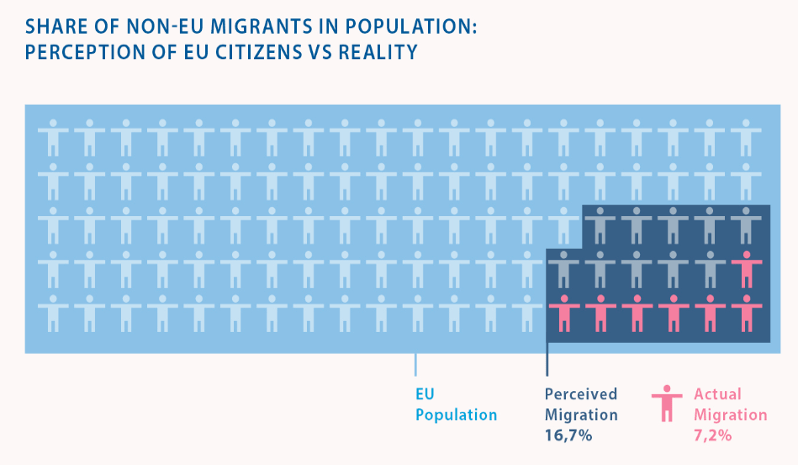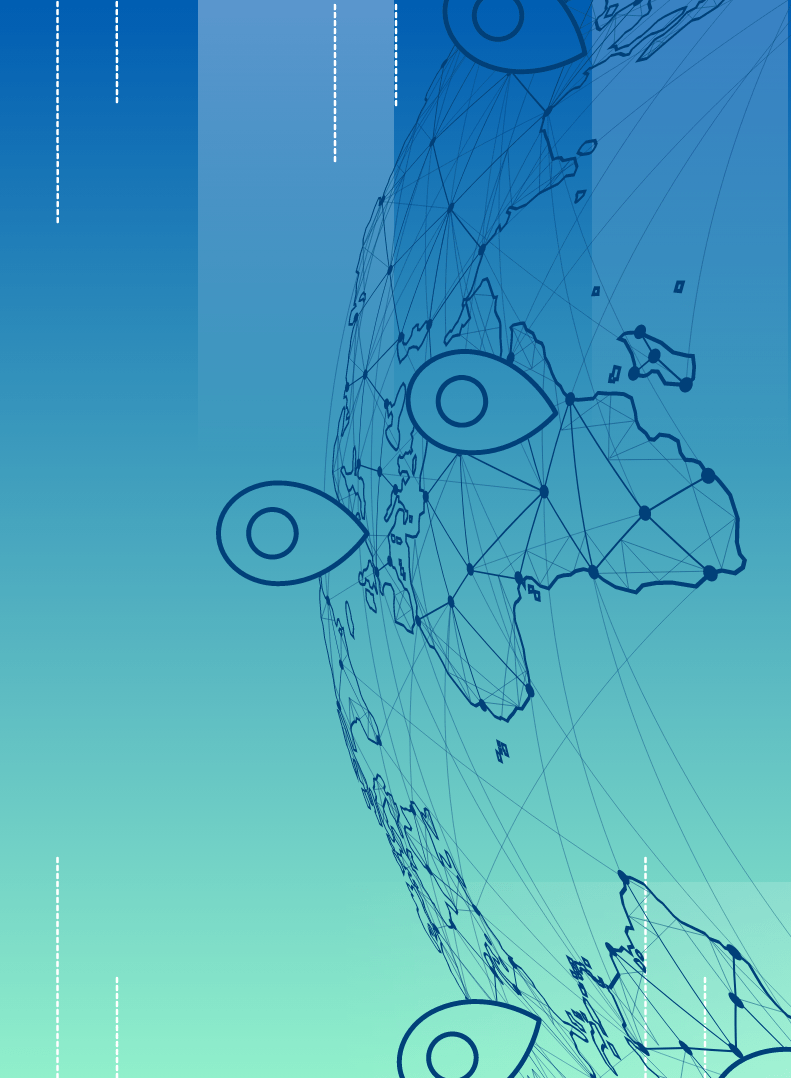

Disinformation on Migration: Three questions I have asked myself
Angelina Pavlenko
How does disinformation shape our perceptions of one of the most critical issues of our time: migration?
In the aftermath of the Taliban’s takeover in Afghanistan in August 2021, inaccurate assertions claimed that hundreds of thousands of Afghan citizens were en route to Europe. I have been following the debate cautiously and consciously – certain right-wing activists propagated false information, asserting that only Afghan men had managed to escape, leaving their families behind. Manipulated visuals and publications only exacerbated anxieties, painting a grim picture of a potential Afghan “invasion”. This example illustrates how disinformation impacts public opinion, as it can reinforce prejudices in society.
Two years later, the story repeats
As someone who is very interested in global issues, migration has always been a topic that captivates my interest. Currently, witnessing the debates surrounding Ukrainian migrants, it is clear that these discussions are too often poisoned by disinformation campaigns. Why does disinformation targeting migrants and refugees spread so rapidly and what consequences can it have for our society? This blog post highlights three questions that I keep pondering.
(1) What is disinformation on migration?
Disinformation on migration refers to the spread of intentionally false or misleading information related to immigration, refugees, and asylum seekers. Involved actors often seek to manipulate public opinion and distort the facts about migration issues. The success of these disinformation narratives can be attributed to the way the actors behind them connect migration to pre-existing negative emotions, fears or insecurities, portraying it as a threatening force.
To give an example: Disinformation on migration played a significant role in the ‘refugee crisis’ in 2015, shaping public perception of migration and impacting European political discourse. Europeans consistently overestimate the number of foreign residents, in part due to widespread, unfounded claims that the EU is facing an “invasion” of immigrants. This distorted perception has had significant consequences for EU policies on migration.

(2) Why is disinformation about migration dangerous?
Disinformation about migrants and refugees can result in a range of negative consequences. It can foster xenophobia, lead to discriminatory practices, and in some cases, even incite direct acts of violence against migrants. Additionally, it hinders constructive policy discussions and decision-making processes.
For instance, following Russia’s invasion of Ukraine in 2022 and the displacement of millions to the EU, disinformation networks quickly began spreading falsehoods regarding the refugees. Among other things, they wrongly accused Ukrainians of causing damage, spreading diseases, and hurting European living standards. These claims were not true, but they had serious effects. Just in Germany, within 9 months, there were 65 recorded attacks on refugee shelters.
However, false information regarding migration is not limited to Europe, nor is it a recent phenomenon. The impact of disinformation on migration extends beyond misleading facts; it often intertwines with conspiracies, significantly influencing public perception on the international level.
(3) What can be done to counter disinformation on migration?
During my internship, I delved into three interesting initiatives countering migration disinformation. Together, they offer a comprehensive and multifaceted approach that has the potential to reshape the discourse on migration:
- Promoting alternative narratives:
A joint research effort of the Foundation for European Progressive Studies, the European Policy Centre, the Friedrich-Ebert-Stiftung, and the Fundación Pablo Iglesias calls for a shift from direct confrontation with disinformation to promoting alternative narratives. This approach can reframe the discourse and counter fear-inducing messages and stereotypes.
- Recognizing human rights journalism:
The South American Migration Journalism Award spotlights journalistic excellence in human rights-centered coverage of migration. By focusing on positive contributions and challenging stereotypes, it enriches public discourse.
- Comprehensive, accurate information:
The Information Hub InfoMigrants offers a well-rounded information source, addressing the countries migrants leave, pass through on their journey, and aim to settle in. Overall, it empowers individuals with accurate and reliable knowledge.
Conclusion
The matter of disinformation about migration is one that should not be underestimated. Whether you have a personal connection to migration or not, understanding the impact of disinformation is an important part of promoting a society that stands for diversity and ensures the fair treatment of all individuals – regardless of their background and personal journey.
It is important to engage in open conversations about the many facets of migrants’ and refugees’ experiences and challenge misconceptions when they arise.
Going forward, I know that I will continue thinking about these issues and look forward to exploring more dimensions of it, including questions like:
- Where do different people encounter instances of disinformation on migration in their social circles or online? How do they respond?
- What other initiatives or organizations are actively addressing disinformation about migration?
- How do global events, such as conflicts or pandemics, influence the dynamics of disinformation surrounding migration?





